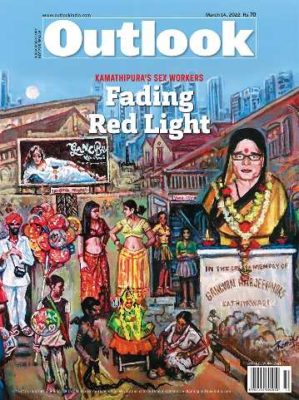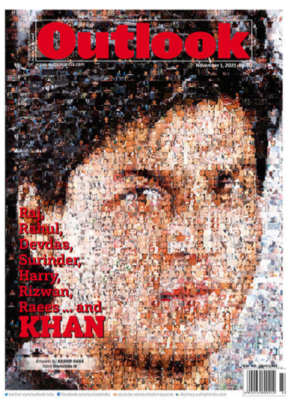Chinki Sinha never intended to become a political reporter. Now, as the first woman to serve as editor of India’s Outlook magazine, she finds herself at the center of the country’s culture and gender conflicts.

Sinha’s background as a field reporter inspires her to address politics through people-centric stories. She repeatedly visited red-light districts like Kamathipura in Mumbai, reporting on one brothel for a decade. In March, she featured the brothel in Outlook, commenting on the displacement of its sex workers by gentrification. One woman told Sinha, “When the towers come up, remember us.”
Sinha says, “As a magazine, our job is to bring into focus certain conversations that people are not willing to have.”
On March 17, Sinha spoke virtually about her experiences as the first female editor of an Indian national news magazine at FIT’s Department of Social Sciences’ World Affairs Lecture. The biannual talk, which is open to the public, offers students a firsthand account of global events that might seem removed from daily life in the U.S. The conversation, which revolved around Sinha’s stories in the male-dominated field of journalism, was led by Souzeina Mushtaq, a visiting faculty member from the University of Wisconsin, River Falls. Professors Emre Özsöz and Yasemin Celik Levine moderated.
As a self-proclaimed “curator of absences,” Sinha has sought to cover the stories typically rejected from mainstream media. At Outlook, which has a circulation of around 425,000, she features outsiders like dissenters and sex workers.
After earning her master’s degree in journalism at Syracuse University, Sinha moved to India in 2008, and wrote for several outlets, including BBC News and Al Jazeera. Six months ago, she became Outlook’s first female editor in its 26-year history. There were mass resignations by men and women who resisted the notion of an unmarried female authority figure. “If you’re a woman, it’s problematic enough—but if you’re single, it’s worse,” she says.
She has encountered harassment from internet trolls and stalkers, which she laughs off. She still faces accusations that Outlook has turned into a “feminist magazine” on her watch—though that’s not a bad thing, she says. “We should all be feminists.” 
Under her direction, Outlook gained worldwide attention with its cover story on India’s most popular and controversial actor, Shah Rukh Khan. More conservative media outlets would not feature Khan due to his Muslim identity.
In February, the right-wing, nationalist BJP party won an important election. “Altered Federalism” was Sinha’s first issue as editor during an election cycle, and she used it to take a progressive stand. “I don’t really believe in this whole objectivity thing. Humans are not objective. Sometimes you don’t have to be neutral when reporting; sometimes there is a very clear-cut line,” she said.
Sinha echoed this conviction in Outlook’s anniversary story of the Farmers’ Protests. “We took a stand that protests are important,” she said. Despite targeted violence, arrests, and tear gas, Sinha continued to report from the field on this yearlong civilian uprising. She was inspired by an elderly protester who eventually lost her life in the conflict.
Critics often question why Sinha has taken pains to include a woman-centric perspective in so many stories. She insists it’s not a choice: “You have to,” she says.
—Written by Sydney Bigelow, International Trade and Marketing ’21
The World Affairs Lecture Series is organized by Praveen Chaudhry, professor of Social Sciences, in partnership with the Dean of Liberal Arts and Sciences, the Presidential Scholars Program, and the Office of International Programs.
